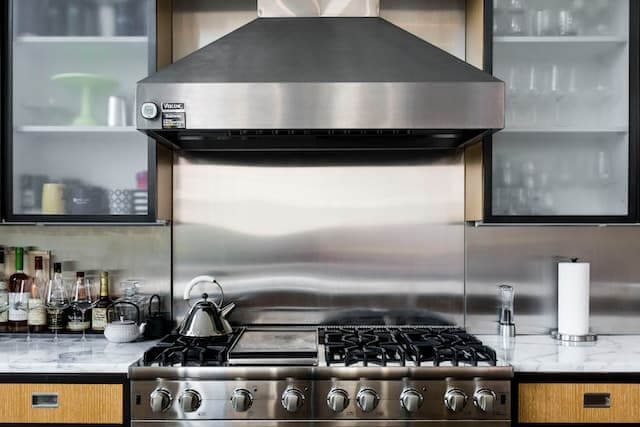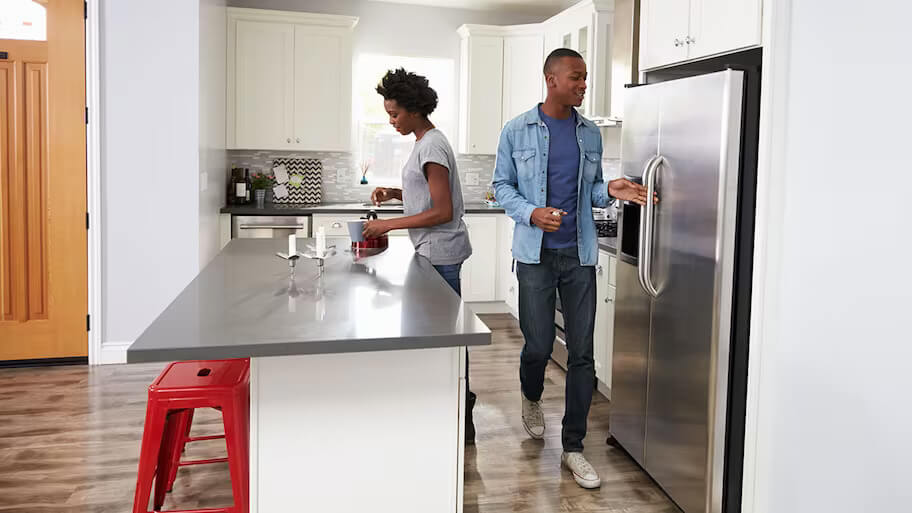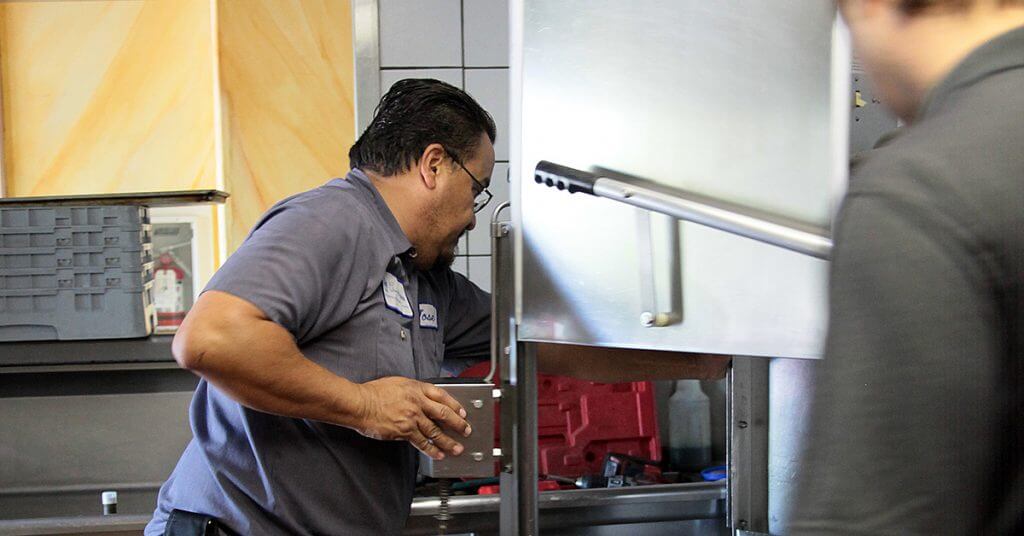
Hey there, savvy homeowners! We know how frustrating and wallet-draining it can be when your trusty appliances decide to throw a temper tantrum and break down. But fret not, because we’re here to spill the beans on how to prevent those costly repairs. In this guide, we’ll dive deep into the world of preventive appliance care, sharing tips, tricks, and expert advice to keep your appliances humming like a well-tuned orchestra.
The Whys and Hows
Why Preventive Care Matters
So, why should you bother with preventive appliance care, you ask? Well, consider this: appliances are like the backbone of your home. They wash, cook, cool, and clean for you day in and day out. Neglecting them is like expecting a marathon runner to excel without proper training and care. Here’s why it matters:
- Cost Savings: Regular maintenance costs a fraction of what a full-blown repair would. It’s like a penny saved is a penny earned.
- Extended Lifespan: Appliances that receive TLC tend to live longer. They’re not much different from us in that aspect, right?
- Energy Efficiency: Properly maintained appliances are energy-efficient, which means lower utility bills. Cha-ching!
- Peace of Mind: No one likes nasty surprises. Regular maintenance provides peace of mind that your appliances won’t act up at the worst possible moment.
How to Get Started
You’re probably wondering how to kickstart this preventive care journey, and we’ve got you covered. Here’s a step-by-step roadmap to appliance happiness:
| Step | Task |
| 1 | Read the Manuals: Start with the user manuals. They contain precious info on maintenance. |
| 2 | Create a Schedule: Set up a routine for checking and cleaning your appliances. |
| 3 | Gather Supplies: Invest in basic cleaning and maintenance tools. |
| 4 | Get Professional Help: Some tasks are best left to the experts. Don’t hesitate to call them in when needed. |
| 5 | Stay Informed: Keep learning about your appliances and any specific care they need. |
Kitchen Heroes
Refrigerator Rescues
Your fridge is the silent guardian of your food, and it deserves some love. Here’s how to keep it purring like a contented kitten:
- Clean Those Coils: Your fridge coils collect dust like a lint trap. Regularly vacuum or brush them clean to ensure optimal performance.
- Seal the Deal: Check the door gaskets for cracks and replace if necessary. A tight seal keeps the cold air in and the warm air out.
- Temperature Check: Invest in a refrigerator thermometer to ensure it’s maintaining the right temperature (around 37°F or 3°C).
- Food Organization: Keep an organized fridge to prevent food from getting lost and turning into science experiments.
Dishwasher Dazzle
Your dishwasher has saved you from countless hours of scrubbing. Return the favor with some preventive care:
- Scrub the Sprayer: Remove the sprayer arm and clean out any debris or gunk that might be clogging it up.
- Clean the Filter: Most dishwashers have a filter that traps food particles. Empty it regularly to prevent blockages.
- Check the Seal: Inspect the door seal for any signs of wear and tear. A good seal ensures there are no leaks.
- Use Vinegar: Every few months, run a cycle with white vinegar to remove mineral deposits and keep the dishwasher smelling fresh.
Laundry Legends

Washing Machine Wonder
Your washing machine takes care of your clothes, but who’s taking care of it? Follow these steps to ensure it keeps spinning smoothly:
- Balance the Load: Overloading the machine can lead to unbalanced loads and damage. Follow the manufacturer’s guidelines on load size.
- Clean the Lint Trap: Front-loading machines have a trap in the door gasket. Clean it regularly to prevent mold and odors.
- Inspect Hoses: Check for leaks or bulges in the hoses and replace them if needed. A burst hose can lead to a watery disaster.
- Leave the Door Ajar: After each cycle, leave the door slightly open to allow the drum to dry, preventing mold growth.
Dryer Delight
Your dryer puts the finishing touch on your laundry, but neglect can lead to a fiery catastrophe. Take these steps to prevent problems:
- Clean the Lint Filter: Empty the lint filter before every load. A clogged filter not only hampers drying but can also be a fire hazard.
- Inspect the Vent: Check the dryer vent for blockages. A clear vent ensures proper airflow and safety.
- Level It Up: Ensure your dryer is level to prevent undue wear and tear on its components.
- Annual Checkup: Consider an annual professional inspection to keep your dryer in tip-top shape.
Climate Control
AC & Heater Happiness
Your heating and cooling systems are the unsung heroes of comfort. Show them some love with these tips:
- Change Filters: Regularly change or clean air filters to ensure efficient operation and better air quality.
- Thermostat Tune-Up: Calibrate your thermostat to maintain a comfortable temperature without overworking the system.
- Professional Check: Schedule an annual checkup with an HVAC technician to catch and fix problems early.
- Seal Leaks: Inspect and seal any gaps or leaks in your home to prevent temperature loss, easing the load on your systems.
Safety First
Appliance Safety Tips
Beyond maintenance, here are some safety tips to keep in mind:
- Unplug When Not in Use: Appliances continue to draw a small amount of power when plugged in, even when turned off. Unplug them when not in use to save energy.
- Install Smoke Detectors: Ensure your home is equipped with working smoke detectors and carbon monoxide detectors, especially if you have gas appliances.
- Stay Informed: Keep up with recalls and safety alerts for your appliances. You can register your appliances with the manufacturer to receive notifications.
- Teach the Family: Educate your family members about the safe use of appliances, especially kids, to avoid accidents.
When to Call the Pros

Sometimes, despite your best efforts, appliances can act up. Don’t hesitate to call in the professionals if you notice:
- Strange Noises: Unusual sounds can be a sign of impending trouble. Get them checked.
- Leaking: Water leaks or gas leaks are serious safety hazards and should be addressed immediately.
- Electrical Issues: Flickering lights, tripped breakers, or other electrical problems linked to your appliances are a red flag.
- Burning Smells: A burning odor is a clear indication of trouble. Turn off the appliance and unplug it.
Final Thoughts
Preventive appliance care is the secret sauce to keeping your home running smoothly and your bank account happy. By following these tips and being vigilant about maintenance, you can sidestep costly repairs and enjoy the full benefits of your hardworking appliances. So, roll up those sleeves and get to work – your appliances will thank you for it!
But we’re not done yet! Let’s delve even deeper into the world of preventive appliance care and explore some specific tips for different types of appliances.
A Closer Look at Specific Appliances
Microwave Magic
Your microwave is the unsung hero of quick meals and reheats. To keep it humming along, follow these tips:
- Clean the Inside: Spills and splatters are inevitable. Wipe down the interior regularly to prevent odors and uneven heating.
- Check the Seal: Ensure the door seal is intact to prevent radiation leaks. Safety first!
- Mind the Turntable: If your microwave has a turntable, make sure it’s properly seated on its support. A wobbly turntable can cause uneven cooking.
- Don’t Slam the Door: Closing the door gently can extend the life of the latch mechanism.
Coffee Maker Care
Your morning coffee fix wouldn’t be the same without your trusty coffee maker. Here’s how to keep it percolating smoothly:
- Descale Regularly: Minerals in water can build up and clog your coffee maker. Run a mixture of vinegar and water through it to descale and keep the flow steady.
- Replace the Filter: If your coffee tastes off, it might be time to change the filter. A fresh filter ensures a cleaner brew.
- Clean the Carafe: Coffee oils can accumulate and turn rancid. Clean the carafe and all removable parts to keep your coffee tasting its best.
- Store Clean and Dry: After brewing, make sure to empty the carafe and leave the lid off to prevent mold growth.
Preventive Care for Small Appliances
Blender Brilliance
Your blender can whip up everything from smoothies to soups. Here’s how to keep it in tip-top shape:
- Clean Blades Safely: Be cautious when cleaning sharp blender blades. Use a brush or disassemble the blender for a thorough cleaning.
- Don’t Overload: Overloading the blender can strain the motor. Stick to recommended capacities to avoid overheating.
- Check the Gasket: The gasket is the rubber ring around the base of the blade assembly. If it’s worn or cracked, replace it to prevent leaks.
- Keep the Base Dry: Avoid liquid spilling into the base of the blender, as it can damage the motor.
Toaster Troubleshooting
Your toaster ensures you start your day with perfectly toasted bread. To maintain its performance, follow these tips:
- Empty the Crumb Tray: Crumbs that accumulate in the tray can catch fire. Regularly empty it and clean any lingering crumbs.
- Adjust Browning Settings: If your toast isn’t browning evenly, adjust the settings or rotate the bread halfway through to get that golden perfection.
- Avoid Overloading: Don’t jam oversized items into your toaster. It can lead to uneven toasting and even mechanical issues.
- Check the Cord: Ensure the power cord is intact and not frayed. A damaged cord can be a safety hazard.
The Techy Side of Preventive Care
Smart Appliances
In this tech-savvy age, many appliances come with smart features. While they make life more convenient, they also require some specific care:
- Software Updates: Just like your phone or computer, smart appliances may need software updates. Keep them up to date for optimal performance and security.
- Wi-Fi Connection: Ensure a stable Wi-Fi connection for your smart appliances. A weak connection can lead to malfunctions or delayed responses.
- Security Settings: Smart appliances can be vulnerable to hacking. Protect your devices with strong passwords and enable security features.
- App Maintenance: If you control your smart appliances through apps, make sure to update and maintain these apps for a seamless experience.
Final Word
With these tips in your arsenal, you’re now well-equipped to tackle preventive appliance care like a pro. Remember, the key to avoiding costly repairs is staying proactive. Regular maintenance, cleaning, and safety checks can go a long way in keeping your appliances in peak condition. So, get ready to be the appliance whisperer in your home, and enjoy the benefits of a smoothly running, stress-free household. Your appliances, your budget, and your peace of mind will thank you. Happy home, happy life!
Frequently Asked Questions (FAQ)
Got some burning questions about preventive appliance care? No worries, we’ve got answers! Check out our handy FAQ for expert insights into keeping your appliances in top-notch shape.
1. Why is preventive appliance care important?
Preventive appliance care is vital for several reasons:
- Cost Savings: Regular maintenance is far more affordable than costly repairs.
- Extended Lifespan: It helps your appliances last longer.
- Energy Efficiency: Well-maintained appliances consume less energy.
- Peace of Mind: You’ll avoid sudden appliance breakdowns.
2. How often should I perform preventive care on my appliances?
The frequency of maintenance depends on the type of appliance. Some need attention monthly, while others are fine with quarterly check-ups. Check the user manual for specific guidance.
3. What’s the most overlooked appliance when it comes to preventive care?
The water heater often gets overlooked. It can benefit from a yearly checkup to prevent sediment buildup and maintain efficiency.
4. Can I do preventive care on my own, or should I hire a professional?
You can handle some maintenance tasks on your own, such as cleaning coils or filters. However, for more complex issues, it’s best to hire a professional to avoid causing further problems.
5. Are there any preventive care tips for small kitchen appliances?
Certainly! For small appliances like blenders or toasters, regularly clean them, empty crumb trays, and replace worn parts. Refer to the manufacturer’s recommendations for specific guidance.
6. What’s the role of professional inspections in preventive appliance care?
Professional inspections are like an annual health checkup for your appliances. They can catch potential issues early, ensuring your appliances stay in great shape.
7. How do I maintain smart appliances with Wi-Fi connectivity?
To maintain smart appliances, keep their software up to date, ensure a stable Wi-Fi connection, use strong passwords, and enable security features. Regularly update and maintain the control apps on your devices.
8. Can preventive care really extend the life of my appliances significantly?
Absolutely! Proper care can significantly extend the lifespan of your appliances. For instance, a well-maintained refrigerator can last 15 years or more, while a neglected one may not make it past 8 years.
9. What should I do if I notice a burning smell or strange noise coming from an appliance?
If you notice a burning smell or strange noise from an appliance, immediately turn it off and unplug it. Contact a professional to inspect and repair the appliance.
10. Can I prevent appliance safety hazards?
You can reduce safety hazards by following proper preventive care, unplugging appliances when not in use, installing smoke and carbon monoxide detectors, and educating your family members, especially children, about safe appliance use.
11. How often should I change the air filter in my HVAC system?
Changing the air filter in your HVAC system should be done according to the manufacturer’s recommendations, but typically every 1 to 3 months, depending on usage and filter type.
12. Should I register my appliances with the manufacturer for safety alerts?
Yes, registering your appliances with the manufacturer is a good practice. It ensures you receive safety alerts, recalls, or important updates that can help you avoid potential hazards.
13. What’s the first thing to do if my appliance starts leaking?
If an appliance starts leaking, the first step is to turn it off, unplug it, and address the leak source if safe to do so. If in doubt, contact a professional for assistance.
14. How can I maintain the electrical components of my appliances?
Maintaining the electrical components of your appliances involves checking cords for damage, avoiding overloading circuits, and ensuring proper grounding to prevent electrical issues.
15. Can preventive appliance care really save money in the long run?
Yes, preventive appliance care can save you a significant amount of money in the long run. It minimizes the need for costly repairs and keeps your appliances running efficiently, reducing energy bills.